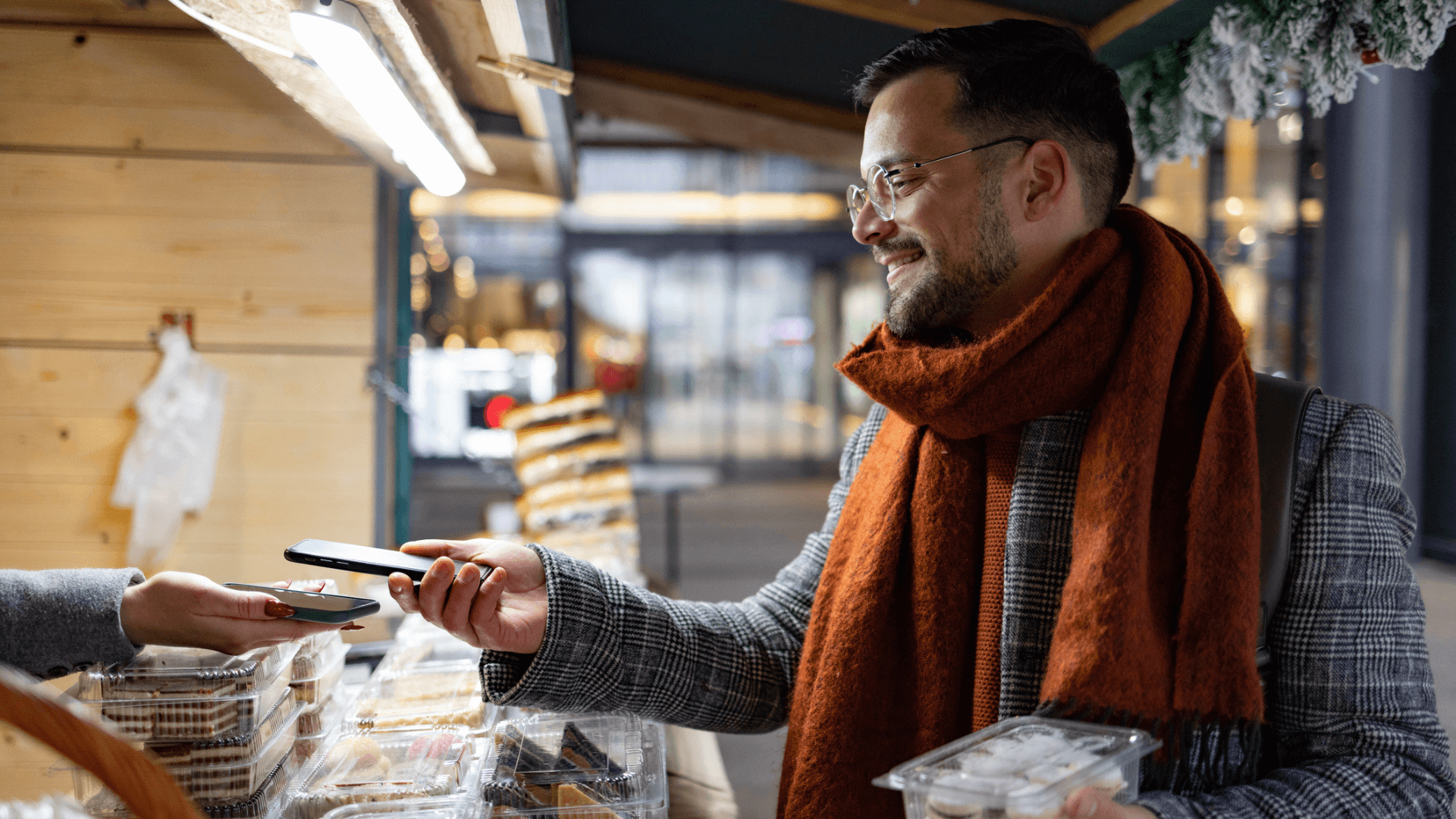What Are AI Agents? And Why Are They Critical to Local Marketing Success?
A Look Into SOCi Summit 2021: Key Takeaways from Localized Marketing Leaders
A Look Into SOCi Summit 2021: Key Takeaways from Localized Marketing Leaders
SOCi recently wrapped up our fourth annual SOCi Summit. Although we would have loved to meet with everyone in person, in order to keep everyone safe and healthy we made the decision to keep SOCi Summit virtual. Throughout the two-day event, we had great conversations with leading multi-location marketers, platform experts, and analysts. If you weren’t able to attend the live event, you can find all of the recordings here. Throughout this blog, we’ll highlight the most important takeaways from the event, and share some of the essential localized marketing updates your business can implement into its own localized marketing strategy.
Day 1
Making a Memorable Mark
As our keynote speaker, Dr. Carmen Simon, Ph.D Chief Science Officer at Corporate Visions kicked off SOCi Summit with some incredible insights on the science behind creating memorable content! Modern marketers understand the indispensable value of storytelling as it relates to brand recognition, but how can we ensure that our brand message is leaving a lasting impact? Dr. Simon began her session by discussing the human brain and the importance of aesthetics when it comes to marketing. There are three ways where humans can make decisions – based on reflexes, habits, or goals. Additionally, Dr. Simon expanded on why the brain prefers familiarity. When your multi-location business is planning its localized marketing strategy for next year or next quarter, be cognizant of how you incorporate a human brain’s processing preferences. Here are a couple of questions she recommended asking yourself:
Reflexes:
- How can clients control their environment?
- How do you include aesthetics and allude to altruism?
Habits:
- Do you link to what they know?
- Do you twist the familiar?
Goals:
- Do you balance strategic and automated processes?
- Do you offer a short set of rules to retrieve memories?
Familiarity and surprise were two large points of focus that multi-location businesses can harness. If a consumer recognizes that part of your marketing campaign is based off a famous movie quote or book, they’ll be more likely to pay attention to it compared to a totally random marketing campaign.
While keeping familiarity in mind is important, your business can also incorporate some elements of surprise. The brain appreciates moments of surprise because that’s when it learns something. For instance, Dr. Carmen provided the example of a bookstore that created a marketing campaign using a logo that looked very similar to the Facebook logo, but rather than “Facebook,” the logo read “Face-a-book.” This is an excellent example of a business incorporating both familiarity and an element of surprise into its marketing efforts. With companies constantly fighting to capture consumer’s attention, it’s crucial to take Dr. Carmen’s advice and think of ways your business can create a marketing campaign that appeals to a brain’s processing process, or triggers an emotional response, whether it’s an element of surprise, familiarity, or both.
Driving Discovery Through Social Synergy
While on marketing campaigns, we kicked off our next session with Phillip Rather, Head of Local at Facebook. Dr. Carmen gave us advice on developing creative marketing campaigns, while Rather’s conversation focused more on driving discovery through social media. In the past, online shopping used to be about people finding products. Today, it’s about products finding people. Shopping habits have fundamentally changed. Thriving businesses recognize that the consumer journey starts well before they have the intent to purchase. This is why Facebook has become a discovery platform for products and services. Nearly 3 out of 4 discoveries happen on the Facebook platform.
So what does it take for your business to create a local social strategy that aligns with discovery commerce? Rather breaks it down for us. When looking at discovery commerce, your multi-location business must focus on:
- Personalization
- Engaging Creative
- Advertising and Conversion Tools
- Optimization
- Measurement Tools
Personalization helps you connect with people most likely to love your business which means more revenue, efficiency, and long-term value. In the world of localized marketing, personalization equals localization. This ties into engaging creative as well. What types of content would your target audience like to see at the local level? Fifty-six percent of brand sales lifted from digital advertising can be tied to high-quality content and creative, so focusing on a creative and local content strategy is vital. Rather also emphasizes that utilizing Facebook’s measurement tools or other analytics tools offered by platforms that support Facebook is essential so you can make optimizations to your content strategy based on performance.
Rather concluded his conversations by driving home the importance of local pages and a local social strategy. Forty-two percent of online communities are connected by local communities. For your business to focus on local social efforts across 100s or 1,000s of business locations, a platform like SOCi that allows you to manage content at local and corporate levels is essential.
The Rise of Non-Branded Search
Up next, we heard from Damian Rollinson, SOCi’s own Director of Market Insights. As a multi-location marketer, you’ve likely heard that non-brand search is on the rise. So what exactly is a non-branded search? Non-branded searches are:
- When a consumer searches for your business, your products, or your services by keyword
- Ex: “coffee shops near me”
- Lower conversion likely due to competition
- Far higher overall search volume and more significant opportunity for growth
Near me, as a search term has at least doubled in volume every year since 2016, so the non-branded search is here to stay. What does this mean for your multi-location business? There are three significant trends your business should be aware of and participate into rank higher on Google and become more visible in non-branded searches.
Trend #1: Personalization
Google uses all of the information at its disposal to create a different search experience for each user, based on that user’s specific needs and circumstances. For instance, Google now includes photos matched to query intent. If you search for a jewelry store, the Google 3-pack would include pictures of jewelry from the store, matching your search term. Similarly, Google also has justifications pulled from multiple sources. A “Justification” is Google’s term for a snippet of text, sometimes with an icon, that is added to a local result. In the jewelry store example, the justification could say, “their website mentions handcrafted jewelry.”
Trend #2: Verticalization
The search experience is increasingly differentiated by traditional and non-traditional vertical subdivisions. For instance, Damian shared that if you search for a nice dinner in Santa Monica, the results you get allow consumers to filter by rating, cuisine, and price. If your business fills out this information in your Google listings, you will be more likely to appear in relevant non-branded search results. The same goes for other industries too. The more information you include on your GMB profiles, the more information Google will have to pull from in these non-branded searches.
Trend #3: Socialization
Over the past few years, Google has grown local search into a massive social network with these critical components:
- Reviews
- Questions & Answers
- Photos
- User-contributed information
Currently, the average business profile has 32 photos, and the average profile has 5 questions, almost all of which are answered by random users. As a multi-location business, you should ensure you respond to reviews promptly, answer any Q&A your company receives on its GMB profiles, include photos on your profile, and encourage user-contributed information.
Ensuring that your business stays on top of the latest trends and incorporating personalization, verticalization, and socialization into your local social efforts is key to improving your visibility on Google and ultimately winning more sales.
Modern Marketing Panel With Industry Leaders
One of the best ways to learn about localized marketing is to hear from the experts. SOCi hosted a modern marketing panel that included representatives from various leaders in localized marketing such as Greystar, Culvers, Bar Louie, and Kumon Learning Center. These companies currently leverage SOCi as their central command™ for localized marketing and shared both the successes and challenges their business faced during the pandemic and localized marketing in general. For instance, Kayla Dillion with Bar Louie explained that they had to rethink their marketing strategy amid the pandemic. Local social wasn’t a top priority at the beginning of the pandemic. They had to educate field teams on the importance of leveraging local social and engaging with comments received.
Bar Louie and Kumon both emphasized the importance of updating local listings during the pandemic. With a tool like SOCi, both businesses managed their local listings across business locations to ensure all business information was updated and accurate. Kumon also explained that the pandemic caused them to rethink its review response strategy. Kumon’s corporate now responds to reviews on behalf of franchisees to keep the response time quick and maintain professionalism. With SOCi, Kumon can see all reviews across business locations and respond – in a timely manner.
For Greystar, with over 1,800+ properties, they had the challenge of getting local properties to leverage local social to keep in contact with current residents and prospects. Many Greystar properties leveraged local social to host online virtual events for residents that craved a community feel during the pandemic. Potential residents could also see these events happening online, and it could incentivize them to lease with that property. Online leasing also skyrocketed in importance throughout the pandemic. On the other side of things, Liz Have with Culvers explained that Culvers was very fortunate that most of their businesses already had drive-throughs in place when the pandemic hit. Like all of our other localized marketing leaders, Culvers did have to embrace digital channels more and form a local social strategy that would help connect customers with their local stores.
What does all of this mean for your multi-location business? If you’re not already focusing on a comprehensive localized marketing strategy, it’s time to start! COVID-19 allowed many companies to see where they lacked in terms of digital marketing. To be prepared for the future and dominate the competition, emphasizing both local social and local search is a must for multi-location businesses.
The Secrets to Local Adoption
One of our last sessions of day one featured Gary Drummond, Marketing Manager of Local at Ace Hardware, and Monica Ho, SOCi’s very own CMO. This conversation focused on communicating your brand’s message and what it takes to scale this message to create unique content and engagement at the local level. Monica kicked off the session with some vital stats:
- Facebook is the number one platform for business discovery, while GMB comes in second
- On average, only 3 percent of your followers will see your organic posts
- Localized content receives 67 percent more engagement than non-localized content
By looking at this data, ACE Hardware realized that it needed to drive local store adoption of local social campaigns. Before leveraging SOCi, ACE’s most significant challenges were:
- Local user education/adoption
- Rogue content and brand inconsistency
- Reputation management was not in the retailer consideration set
- Lack of local social advertising
- No local reporting or scorecard
After choosing to partner with SOCi, ACE educated its local stakeholders on the importance of local social, received the adoption of a content plan, and put in time and effort to help local retailers execute the plan. ACE also leaned on SOCi to help measure the performance of its local social strategies. After using SOCi for a few years, SOCi’s Community Calendar was released. Drummond called this new feature the actual “easy button” for helping stores advertise to local communities. With this community calendar, local stores could leverage both corporate and local content for their local social strategy. ACE now has 85 percent of their local retailers utilizing local social effectively and has started seeing great results. For more insight into ACE’s journey to local adoption with SOCi and our Community Calendar, check out our recent case study.
Opening Doors and Reimagining Pathways
As day one of SOCi Summit wrapped, we heard from Kelsey English and Lauren Reilly at SuitUp. SuitUp is a 503(c) non-profit helping companies tackle our industry’s diversity need at the pre-collegiate level through active learning scenarios that increase career awareness and readiness in the technology, advertising, and marketing fields. Through SuitUp, students from 10 to 18 years old become part of a mentorship program and experience solving a realistic corporate challenge, such as designing a new product for Nike. Students participating in the program have the opportunity to interact with corporate volunteers who coach them on marketing, design, financing, strategy, and soft professional skills.
After working with SuitUp, 92 percent of students say they like learning more in school. SuitUp has served more than 10,500 students across the country and has had 8,500 volunteers engaged. SOCi is among sponsors taking steps outside their organizations to address diversity gaps and demographic disparities in advertising and marketing. As a part of SOCi’s sponsorship, 15 SOCi employees received the opportunity to participate as coaches. For more information on SuitUp and how your business can get involved, visit their website here.
Day 2
Yelp: 2021 and Beyond
To kick off day two of SOCi Summit, we heard from Jim Chappelle, Sr. Director of Business Development at Yelp, and SOCi’s own Richard Lumsden, VP of Business Development. With over 178 million unique users per month, Yelp is still one of the highest-trafficked business directories online today, competing with Google and Facebook. According to a recent study, Yelp users have high intent, and are ready to spend money – they visit Yelp to validate a purchase decision they’re ready to make as 97 percent of consumers make a purchase after visiting a local business’s profile on Yelp.
Throughout his conversation with Lumsden, Chappelle emphasized the need for businesses to not only have an organic presence on Yelp but a paid engagement through advertising on Yelp through the platform directly or through a Yelp partner. If your business is solely relying on presence management on Yelp, you could be missing out. Ninety percent of Yelp searches are non-branded, and to appear on the first page of these non-branded searches, advertising on Yelp is a must. Chappelle also touched on the importance of Yelp attributes. Yelp attributes let you select different features and offerings your business has. Consumers can search for companies based on attributes, so your business must have selected all of the most relevant details. For instance, your business can highlight if it’s woman-owned or black-owned, your face-mask requirements, or even whether curbside or pick-up is an option. There have been significant increases in women-owned and black-owned searches on Yelp, and these attributes help consumers find these businesses efficiently.
When asked about the future of Yelp, Chappelle explained that the company plans to continue to expand its product suite over the following months and into the next year. While attributes have already developed, they’re expected to continue to grow more in the future. Yelp also began piloting spotlight ads, allowing national businesses to advertise right within Yelp’s home screen. WIth digital consistently evolving and growing, your business needs to keep an eye on Yelp’s growth and learn how you can incorporate its updates into your local search strategy!
What it Takes for Multi-Location Brands to Dominate Localized Marketing
To wrap up SOCi Summit, we had two breakout tracks, one for brands and one for property management companies. There were three separate sessions in the brand track, one focused on local SEO, one on discovery and local social, and the third highlighted reputation management strategies that move the needle for multi-location marketers.
Key Brand Breakout Takeaways:
Local Search
When it comes to SEO, there’s a lot of stats that your business should be aware of:
- Seventy-five percent of consumers don’t look past the first search engine results page
- Top page search results receive 93% of organic traffic
- Now over 90 percent of keyword searches include a 3-pack listing
Local SEO should be a crucial part of your localized marketing strategy. To optimize your SEO efforts, your business must:
- Claim and verify your GMB listings
- Make sure your name, address, and phone number are accurate
- Include your primary business category
- Add relevant subcategories
- Add your products and services
- Create appointment links
- Add attributes that fit
As mentioned earlier, your multi-location business should also ensure it’s responding to reviews on time, adding photos to your GMB profile, publish Google Posts, and respond to your Google Q&A. All of these factors contribute to Google’s ranking factors and will help improve your business’s local SEO and online visibility.
Local Social
By now, you should know that local social is here to stay. Three out of four consumers said they had discovered a new product or service on local social. From product discovery and purchase to feedback and customer loyalty, local social is present at every stage of the buyer’s journey. When creating a local social strategy, it’s important to remember that local content is king. If you’re having trouble coming up with a content strategy, consider the following:
- Create inspiration and lifestyle-driven content
- Leverage local influencers
- Share informative content
- Provide content that speaks to your local audiences
By following these tactics, your multi-location business should be able to level up its local social presence and connect with more of your target audience.
Local Reviews
The last session focused on reputation management. Today 88 percent of consumers trust online reviews as much as personal recommendations. Similarly, 95 percent of consumers say online reviews influence their buying decisions. When it comes to online reputation, your multi-location business must
- Claim and verify all local listings as mentioned with local SEO
- Audit your existing reputation
- Monitor your brand everywhere. Social listening can help
- Manage and respond to all reviews
- Grow local content marketing efforts. Consumers trust peer recommendations
As a multi-location marketer, maintaining a solid online reputation is a must. For more insight on what it takes to win your reputation management strategy, check out our blog on the topic.
What it Takes for Property Management Companies to Dominate Localized Marketing
Our property management breakout sessions concluded our 2021 SOCi Summit. There were three breakout sessions. One on optimizing your GMB profiles for success, another on changing your social strategy to meet your capacity, and the third focused on turning interaction into action and how to convert your leads into leases.
Key Property Management Breakout Takeaways:
Local Search
In the GMB masterclass, our presenters shared that consumers search near me 5x more than they search for brand names. Google is doubling down on the importance of localization now that one out of every two searches has local intent. So what does this mean for your property management company? Try these easy tips to optimize your local GMB profiles for success:
- As mentioned previously, create and claim your GMB listings
- Add in a business description, highlight what makes your property unique, and use high-valued keywords
- Add in your primary category
- Be proactive, create great content and engage in increasing your local visibility
- Reviews are just as critical as your location and how much your rent costs.
- Monitor and respond to reviews at the local level.
- Include photos in your local GMB profiles
- Respond to and monitor your GMB Q&A just like you would your local reviews
Following these steps will help your local properties rank higher on Google and show up in relevant property searches.
Local Social
When looking at changing your social strategy to match your capacity, the conversation was very similar to the social discussion had in the brand breakout. Digital expectations are growing. Gen Z and millennials will increase from 8 million to 55 million in the next decade. Fifty-eight percent of tenants expect instant digital communication from their landlords, and 65 percent want to pay online. Is your property management company’s local social strategy up to par? If not, follow the tactics mentioned previously on what it takes to create a dominant local social plan. Again, user-generated and local content is vital!
Resident Retention
The last property session was focused on conversions and retention. Before you’re able to convert leads into leases, you must know your target audience. Once you know your target audience, you can control the narrative. When you’re focused on conversion, it’s imperative to make sure you are actively a part of any relevant conversations that occur online. This is where social listening comes in. Social listening allows your business to monitor conversations happening online that don’t include your brand name.
Your property management company should also leverage social proof. Respond to reviews promptly and utilize user-generated content. Your business can also provide rewards and incentives to current tenants, so potential residents can see this as a reason to sign a lease at your property. There are various ways for your business to convert your leads into leases, but it’s all about being strategic. Try testing some of these tactics we’ve mentioned, and track how it impacts your sales funnel.
As you can see, there was a lot of great information covered at our 2021 virtual SOCi Summit. If you’d like to learn more about any of the sessions discussed throughout this blog, check out the recordings here. If you’re interested in learning more about SOCi and how we can help your multi-location business crush its localized marketing efforts, request a demo today! We’re already looking forward to next year’s SOCi Summit, and learning more about the world of localized marketing!










